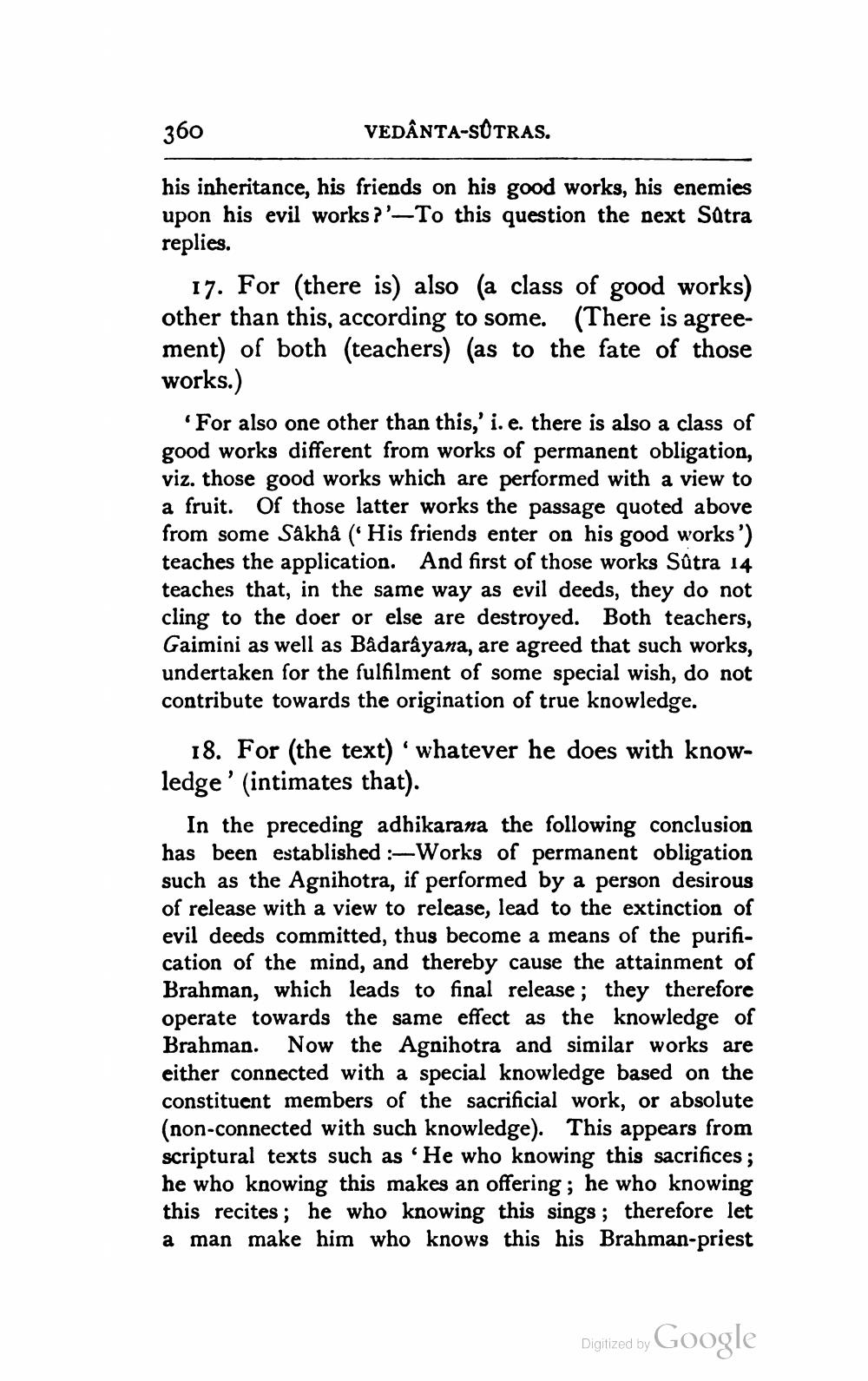________________
360
VEDÂNTA-SOTRAS.
his inheritance, his friends on his good works, his enemies upon his evil works?'-To this question the next Satra replies.
17. For (there is) also (a class of good works) other than this, according to some. (There is agreement) of both (teachers) (as to the fate of those works.)
*For also one other than this,' i.e. there is also a class of good works different from works of permanent obligation, viz. those good works which are performed with a view to a fruit. Of those latter works the passage quoted above from some Sakhå (His friends enter on his good works') teaches the application. And first of those works Sûtra 14 teaches that, in the same way as evil deeds, they do not cling to the doer or else are destroyed. Both teachers, Gaimini as well as Bådarayana, are agreed that such works, undertaken for the fulfilment of some special wish, do not contribute towards the origination of true knowledge.
18. For (the text) 'whatever he does with knowledge' (intimates that).
In the preceding adhikarana the following conclusion has been established :-Works of permanent obligation such as the Agnihotra, if performed by a person desirous of release with a view to release, lead to the extinction of evil deeds committed, thus become a means of the purification of the mind, and thereby cause the attainment of Brahman, which leads to final release; they therefore operate towards the same effect as the knowledge of Brahman. Now the Agnihotra and similar works are either connected with a special knowledge based on the constituent members of the sacrificial work, or absolute (non-connected with such knowledge). This appears from scriptural texts such as 'He who knowing this sacrifices; he who knowing this makes an offering; he who knowing this recites; he who knowing this sings; therefore let a man make him who knows this his Brahman-priest
Digitized by
Digized by Google




